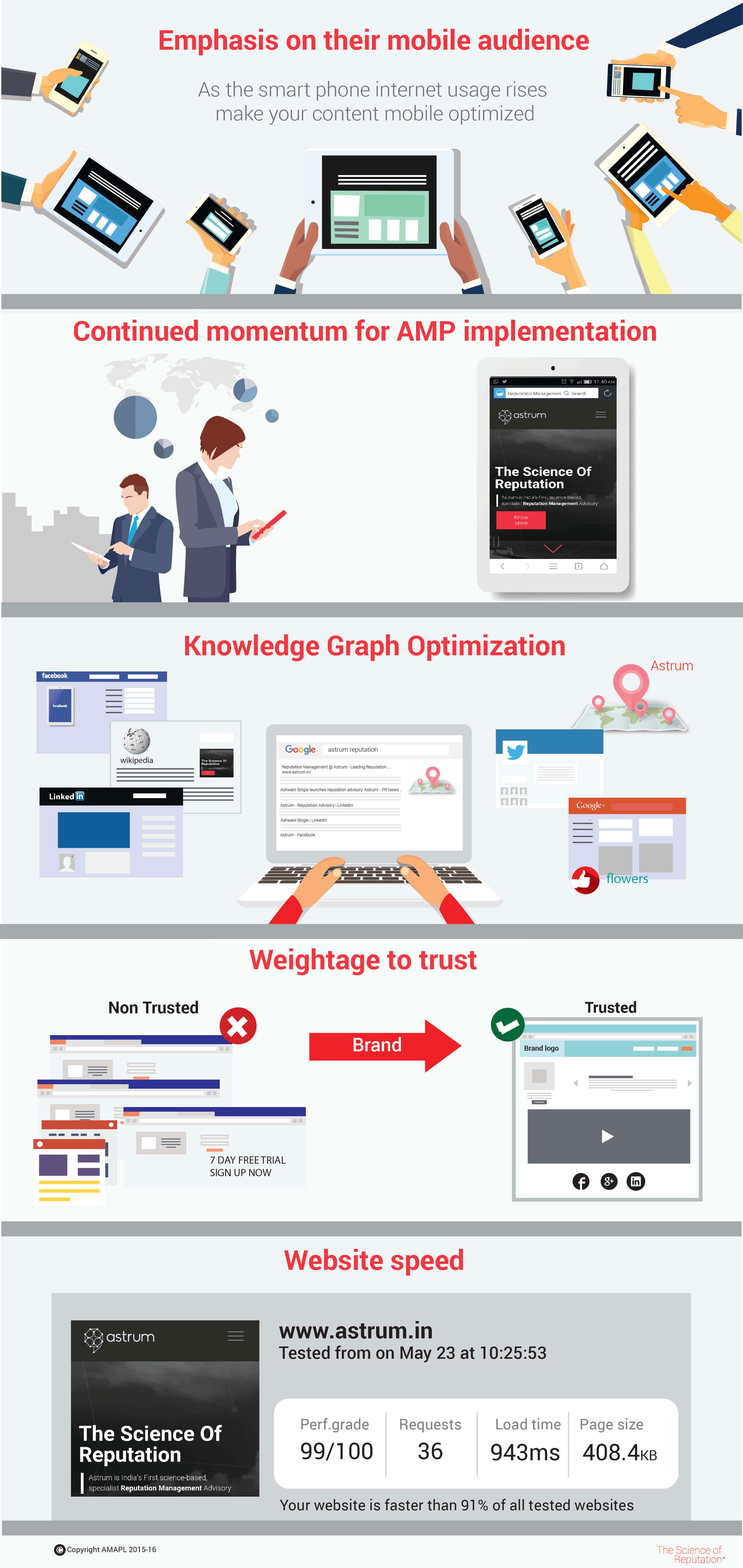Making your website work for you
With the increasing updated algorithms that the biggest search engine Google comes up with each year, there is a greater challenge for every digital specialist to rank their sites and offer competition unabated.

Here are a few suggestions for the marketer to circumspect.
1. Emphasis on mobile audience – as the smart phone internet usage rises, It necessitates more prominence of the site to be mobile optimized.
2. Continued momentum for AMP implementation – Accelerated Mobile Pages (AMP) load four times faster and use eight times less data than traditional mobile-optimized pages, therefore, ‘word press’ will support all publishers that wish to enable AMP pages.
3. Knowledge Graph Optimization – More information about your search suggested on the same page – landmark, location, reviews, and people on LinkedIn etc. is the first step towards optimizing your marketing efforts that taps into an automated intelligence of the web about your site.
A few more add-ons – create a Wikipedia page, claim and build followers on your google + page, make sure you have implemented schema markups on your site, interlink your site to other credible sites, use of nouns Vs pronouns in your content.
4. Weightage to trust – It is easy to distinguish trusted and non-trusted sites nowadays obtaining tons of links on valuable content that adds value. Glassdoor, BBB’s business review, Seek, Indeed, Careerbliss, LinkedIn, Vault, hallway are a few sites, where one could capture a plethora of organic traffic.
5. Website speed – To steal a march over your competitor with your website, is the key. A case study by KissMetrics found that 47% of internet users expect a website to load in 2 seconds or less and the other 40% users abandon a website, wherein loading takes longer than 3 seconds do.

